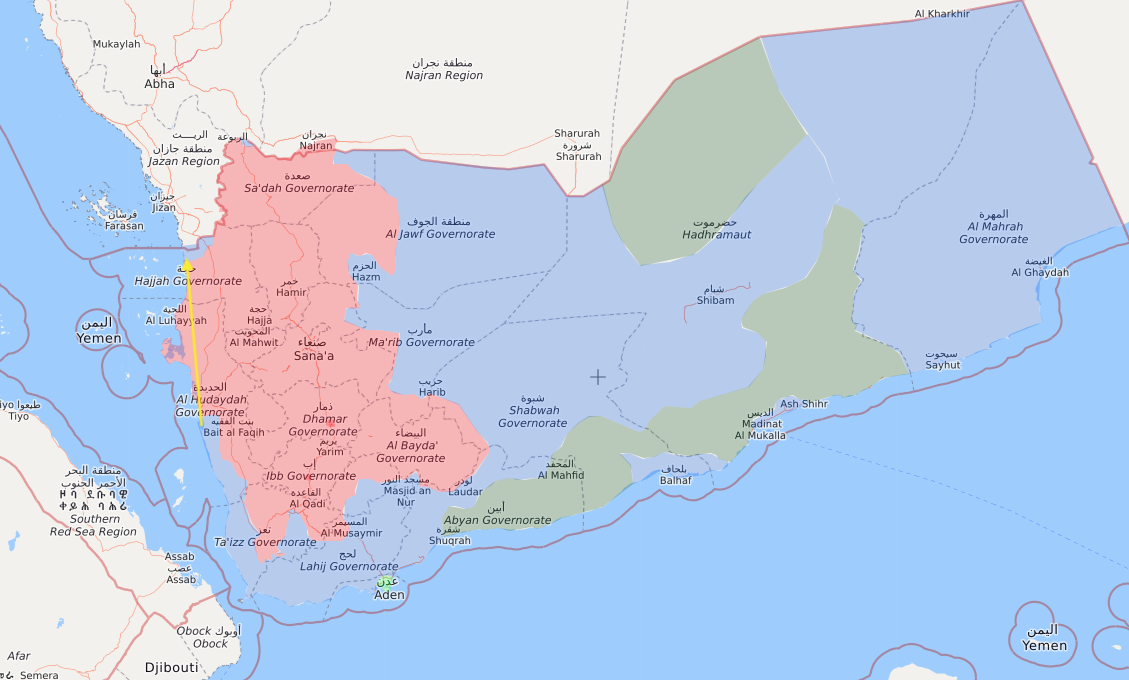North Korea might be his primary focus, but President Trump must use his influence to constrain the more aggressive impulses of two U.S. allies in the Middle East — specifically, the United Arab Emirates and Saudi Arabia.
UAE military forces are currently preparing to assault the Yemeni port of Hodeidah on the Red Sea. UAE officials declare that if Iranian-supported Houthi rebels do not leave that port overnight Tuesday-Wednesday, they will use force to seize it. That’s worrying because Hodeidah supports millions of beleaguered Yemenis who are reliant on the port’s provision of fuel, food, and other basic supplies.
But the UAE and Saudi Arabia want to drive the Houthis out. Since Yemen’s capital, Sanaa, was seized last year alongside an Iranian-supported assassination of former Yemeni president Ali Abdullah Saleh, the allies have been desperate to seize the strategic initiative.
Taking Hodeidah is a crucial stepping stone towards that objective. As shown by the Liveuamap map below (my annotated line in yellow), the UAE, Saudi Arabia, and their proxies intend to surge north up the Red Sea coast and thus deny the Houthis access to coastal supply lines. If the allies succeed, the Houthis’ only border access will be with Saudi Arabia, which obviously offers no salvation.

Yet, while the Trump administration has understandable sympathy for the allied effort to stop the Houthis from firing ballistic missiles at the Saudi capital, Riyadh, Trump must ensure the allies do not use Hodeidah to strangle civilians living under Houthi control. Absent U.S. pressure, that’s exactly what the allies are likely to do.
While the UAE says that its capture of Hodeidah will allow for more effective humanitarian supplies, the allies’ past conduct in the now-three-year-old Yemeni civil war suggests otherwise. After all, for the last 15 months, the allies have consistently blurred the distinction between Houthi forces and civilians. Alongside criminal gangs which steal food supplies and Houthi use of food as a loyalty gift, hundreds of thousands of civilians are starving and dying from easy-to-treat diseases.
Still, Trump can take action.
First, the president should make clear to Saudi Crown Prince (and de facto allied leader) Mohammed bin Salman and the Emir of Abu Dhabi that Hodeidah must not become a fortress port. Instead, Trump should seek the allies’ commitment to allow aid flows to move from Hodeidah into Houthi territory, even if those aid flows run the risk of falling into Houthi hands. He should also push bin Salman to allow aid flows from Saudi Arabia into U.N.-run centers in Houthi territory.
In reciprocity, Trump should expand ongoing U.S. targeting support to enable the allies to pressure the Houthis more effectively. Fortunately, Trump’s tough stance on Iran has earned him Emirati and Saudi respect that President Obama lacked. This respect has outsize effect with the Sunni-Arab allies in the sense of the cultural importance they place on loyalty and transactional politics.
Yet, if the allies take Hodeidah and then prevent the passage of aid through the port, tens or hundreds of thousands of civilians may die unnecessarily. The UAE and Saudi Arabia want continued U.S. diplomatic and military support for their efforts. Trump should make that support contingent on their concessions to civilian concerns.

